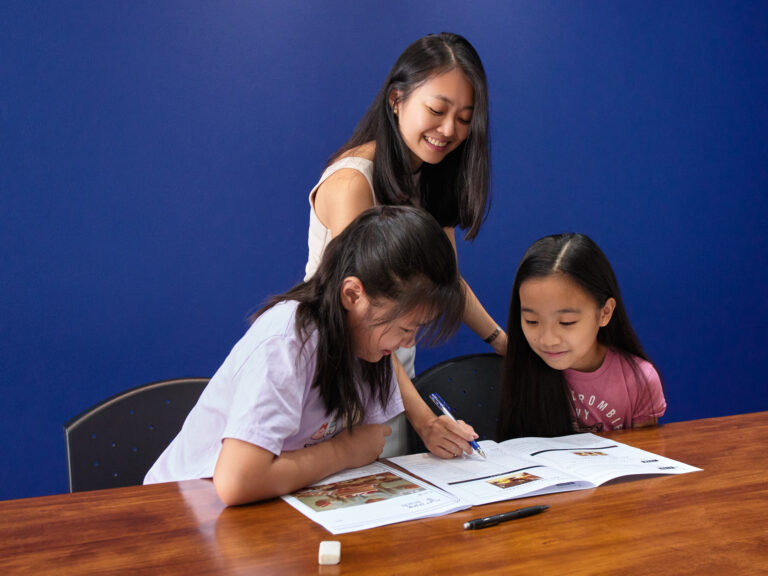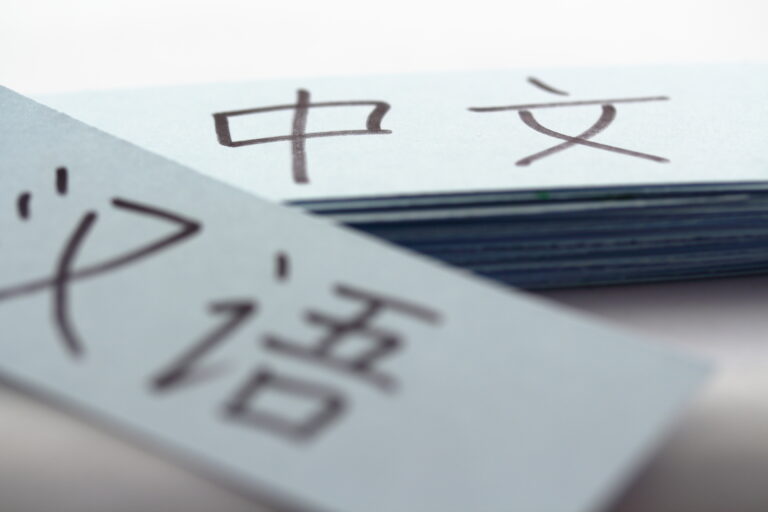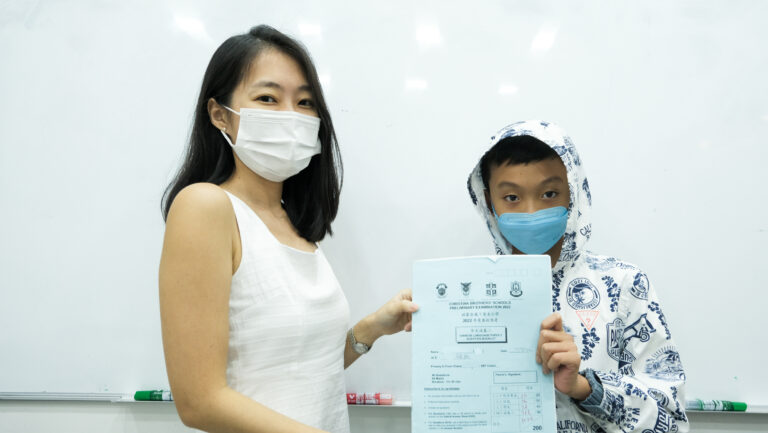by Co-Founder, Algene Tan
We rack our brains on a daily basis to think of novel and ingenious ways to improve our Primary School Chinese programme. We know many children loathe and struggle with Chinese. In a bid to turn their frowns into smiles, we strive to incorporate fun and relatability into our Chinese curriculum.
That said, please worry not and read on for this is not another run-of-the-mill article about how a tuition centre makes learning Chinese fun. This article is also not some cautionary tale about a student hating Chinese, doing badly in Chinese and jeopardising an otherwise decent PSLE score. What this article is about is my personal sharing of the importance of Chinese in three areas of my past and present work, and how much I wish my Chinese was so much better than just “conversational.”
Chinese in my past life as a corporate lawyer
China is the land of the nouveau riche. The amount of wealth generated in and flowing out of China is breath-taking. While working as a corporate lawyer in a top law firm in Singapore, I have dealt with my fair share of Chinese clients and counsels. More often than not, we were expected to converse, instruct and advise in Chinese. It was also not uncommon to be asked to draft, review and translate documents which were in Chinese.
I remember those trying days. I would barely have survived if not for my companion, ‘Google translate,’ and wished greatly that I had paid more attention to honing my Chinese while I was still schooling. If only I had taken a keener interest in the language, I would not have had to suffer so much.
A strong competency in Chinese will be undeniably advantageous as the need to interact in Chinese with the Chinese nationals will only grow in the near future. The COVID pandemic has thrust Singapore into the spotlight as arguably Asia’s numero uno financial hub. More of Asia’s rich and famous are also choosing Singapore as their ideal residence. Indeed, with the diminishing appeal of Hong Kong and mainland China due to their stringent COVID stances, we are witnessing more investment and wealth flowing towards the direction of Singapore.
On this front, the one piece of advice I would give to you as parents is this: If you want your children to be able to take the business world by its horns, ensure that they learn their Chinese well. Do not let them off the hook with the same-old excuse of hating or having no interest in the language!
Chinese is so important. And not just for the PSLE!
Chinese when communicating with first generation Singaporean families
A Chinese parent of ours recently shared an interesting article on LinkedIn. The Straits Times reported that 1 in 5 boys enlisted for National Service is a new citizen or permanent resident, up from 1 in 20 in the early 2000s. That Chinese parent captioned the article by proudly proclaiming that her eldest son was one of the boys that made up the latest statistic.
It was heartening to see how much appreciation and pride she had for Singapore even though she was not born and bred here. But what really dawned on me was that there are indeed many more ‘new’ citizens in our midst. There are also many young children among us and whom we have the privilege of teaching that are first-generation Singaporeans.
What are first-generation Singaporeans? If your child is the first in your family to be born in Singapore and made a citizen of Singapore, he or she would count as a first-generation Singaporean. For the longest time, as part of a protracted national policy, Singapore has been welcoming foreign talent from countries like Malaysia and China to boost and complement our workforce. This pool of foreign talent has tirelessly toiled for Singapore for decades and made a home for themselves here.
Funnily enough, our foreign talents have been so naturalised that most have also adopted the Singaporean fanfare for enrichment classes. We feel extremely comforted because the tuition culture in Singapore is stronger than ever! Jokes aside, the point I am trying to make in this section is that just like the Singapore army, we too are receiving and teaching an increasing number of children who are ‘new’ citizens or permanent residents. Many of these children have parents who are Chinese or Malaysians who are more comfortable speaking in Chinese.
What has that meant for us? Yes of course, more students to teach, but also an increasing need to converse with parents in Chinese! For someone like myself with only a “conversational” competency in Chinese, it has not been a bed of roses. You have no idea how much torture it is to know what you want to say to parents but not have the words in Chinese to say it.
If you are one of the parents who have been on the receiving end of my poor Chinese, I apologise. But if you are a parent whose child is resisting learning their Chinese well, then please listen to my advice and encourage your child not to give up on learning Chinese.
Chinese is so important. And not just for the PSLE!
Chinese in my pursuit to expand Think Teach abroad
For the benefit of those unaware, Think Teach is not just in Singapore. Since 2018, we have been expanding Think Teach overseas. Our team of teachers have taught in Shanghai, Hong Kong, Bangkok, Kuala Lumpur and Hanoi. The list does not stop here, but we have plans to grow Think Teach to an international brand.

Boon, Shou Yee and me travelling around the world to promote Think Teach (2018)

Boon and Shou Yee teaching our first IB class in Shanghai (2018)

Me teaching our first primary school class in Shanghai (2019)

Me teaching our first primary school class in Shanghai (2019)
For the purpose of this article, I want to highlight my experience in Shanghai. Before the COVID pandemic, we were very active in teaching there. We even had centres in the prime districts of Pudong and Puxi. From 2018 to 2020, I was shuttling back and forth between Singapore and Shanghai. It was a tiring but extremely rewarding experience.
But that was where my limited Chinese had returned to taunt and hamper me. I struggled a lot communicating with the Chinese locals because my Chinese ability was not up to scratch. There were so many times I had to tell the Chinese parents to type their messages to me in WeChat so that I could translate them automatically to English. I would then do the same to them in English and they would translate my messages to Chinese. It was a hilarious situation in hindsight, but was utterly embarrassing when I was in that moment.
I truly believe that I could have done more and gotten even further in China had my Chinese not pulled me back. It is impossible to change things now, but what I can do is to prevent getting caught with my pants down again! I intend to work on and improve my Chinese today and every day from today. And my hope is that your child does the same.
Chinese is so important. And not just for the PSLE!


Me being interviewed by CNA on Think Teach in Shanghai (2021)
Concluding Words
These are three memorable incidents from my life where I experienced first-hand the importance of being competent in Chinese. Regardless of your child’s sentiments towards the language, I hope that they see the importance of Chinese and push through with learning it. Learning Chinese is not just for the PSLE or for any other examination after that. Learning Chinese is for life: a life-long endeavour and a necessary life tool.
Lest parents think that my Chinese was beyond repair, I would like to save my reputation by declaring that I was a Higher Chinese student throughout my years in formal education (I hope that counts for something!). The scary revelation I am making in this article is that what we learn in school is often not enough for the real world. We must find ways for our children to fall in love with the language so that they continue to learn and use it beyond the classroom.
The reason? Simply because Chinese is so important. And not just for the PSLE!




